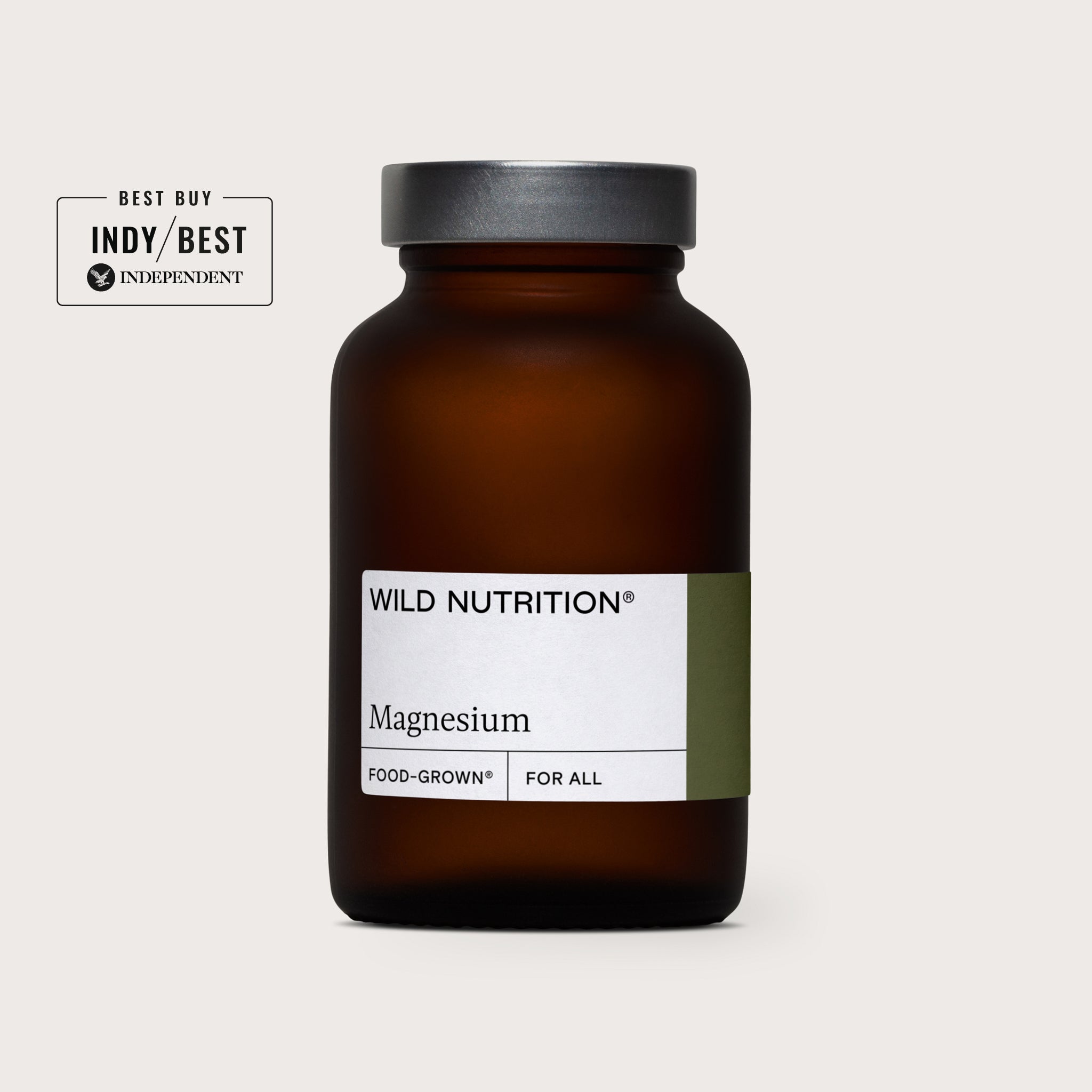
Vitamin D: How much is enough?
1 in 6 of us in the UK are estimated to have insufficient blood levels of Vitamin D for good health*(1); we simply can’t produce enough of it from the sunshine alone and especially for those of us in Northern Europe. The half-life of this vitamin is 3-6 weeks, so even gathered stores over the summer rapidly decline by the time we get to the deeper winter months.
BY LORNA DRIVER-DAVIES, HEAD OF NUTRITION
Vitamin D is a major nutrient if you are looking to achieve great health. But with so many of us experiencing low levels and deficiency, we take a deep dive on why we need to supplement and by how much.
Vitamin D is a major nutrient if you are looking to support your immune system, bones and teeth. But with so many of us experiencing low levels, and those levels are a challenge to correct with sunlight alone - we take a deep dive on how we can achieve healthy levels through official recommendations on supplementation.
How much vitamin D do I need to take?
Aside from sunshine helping us with Vitamin D levels, Vitamin D can also be found in food. But only 10 % of intake can be achieved via diet. Vitamin D rich foods include:
- Oily fish (salmon, trout, sardines, mackerel)
- Whole-fat dairy
- Egg yolks
- Red meat
- Fortified food
Therefore if you don’t eat these foods, or rarely consume them, then you won’t even be getting the 10%.
The Department of Health recommends the following guidelines and supplementation for these life stages:
- Adults
- Teens
- Babies & Children
- Fertility, Pregnancy & Breastfeeding
Adults' Vitamin D requirements
All teens and adults should supplement 10ug (400iu) everyday between October and the Spring (the official month is March but common sense should be applied, since March sunshine ‘quality’ will vary year on year). If over the age of 65, the recommendation is this dose is taken all year around - especially if indoors more, not exposed to consistent sunlight and if experiencing illness.
All pregnant, breastfeeding women and at-risk groups (such as people from ethnic minority groups with dark skin, elderly people in care homes and those who wear clothing that cover most of the skin) should take a daily supplement containing 10 micrograms (400iu) of Vitamin D all year around.
However, consider that many people in the UK do not get good access to consistent sunlight due to work (offices) and 'typical British' summer weather (cloudy days and rain).
Please speak to a health professional if you feel you need to take additional Vitamin D over the recommended levels and especially if you have received results that show you are below the optimal range or deficient as you may be professionally recommended to supplement with more than 10ug.
Vitamin D is essential for a healthy immune system so do consider this if you are experiencing any ongoing challenges to your immune system. Your health professional may be able to discuss bespoke dosing for certain conditions.
Teens and Vitamin D
Vitamin D is an essential nutrient for developing teens. Research shows low Vitamin D levels are very common in adolescents *(2) which is a concern when at the same time their skeleton grows at the most rapid rate of any other lifestage.
Therefore they may be ‘using up’ their Vitamin D levels for their bones but they also require Vitamin D for their immune system. Their developing immune system may fluctuate more than an adult, as they are prone to higher levels of inflammatory cytokines (immune chemicals) *(3).
Teens low in Vitamin D should be evaluated for supplementation more like a young adult, and not as a child. It is so often they are viewed nutritionally, incorrectly, as ‘bigger children’.
Vitamin D in babies and children
All babies from birth up to one year of age should take 8.5 to 10 micrograms (340iu to 400iu) of vitamin D per day (particularly those being breastfed). Babies fed infant formula will not need vitamin drops until they are receiving less than 500ml (about a pint) of infant formula a day, as these products are fortified with vitamin D.
Children between the age of one and four should take 10 micrograms of vitamin D (400iu) supplements all year round. Bear in mind babies and toddlers (and older children) who do not consume Vitamin D rich foods and ask for support on this topic from a health professional.
Vitamin D in fertility, pregnancy & breastfeeding
Official UK government advice is that women who are pregnant or breastfeeding, require 400 IU (10ug) of Vitamin D to be supplemented.
Please seek advice from a health professional if your current levels are less than optimal or low or deficient and especially so in the colder and darker months of a pregnancy. You are also more at risk for low levels if you spend greater amounts of time indoors (even in the summer), or have darker skin or cover up your skin.
If you are already pregnant, you need to make sure you are supplementing at least the officially recommended dose for both your own health and your baby’s health (who draws upon your reserves for its growth and development).
If you didn’t know you were supposed to be supplementing Vitamin D in pregnancy, you may need to catch up on dosing quickly - and do seek health professional advice on this for safe supplementation.
NHS testing for pregnant women does not usually happen before your first midwife appointment and sometimes later at around 8 weeks (or a little later around 12 weeks) so if you are concerned, book an appointment with your doctor sooner.
If you are not currently pregnant but that is your goal, you need to understand that Vitamin D levels may not be optimal ‘overnight’ so you may need to plan with supplementation and knowing your Vitamin D levels in advance of a pregnancy. The nutrition preparations you make in the preconception phase are an important part of supporting a healthy immune system and bones and teeth during pregnancy.
We recommend getting your levels tested (blood test). If you are undergoing assisted fertility such as IVF we recommend getting your levels checked in advance of the start of any procedures or medical treatments. Please note that some fertility clinics do not check Vitamin D levels as standard so please request this or check with your normal GP, IVF clinic or other official Vitamin D test provider.
Breastfeeding women are giving some of their Vitamin D away via their milk so supplementation is key. Even if you don’t breastfeed, consider supplementation - especially if you have newly given birth when you are at risk of nutrient deficiencies due to the nature of experiencing a delivery (blood loss, more requirement to heal, impacts to the immune system through lack of sleep or broken sleep).
Should we supplement with Vitamin D?
As we’ve already established, sunshine is arguably not a reliable source of vitamin D. This is partly due to needing sufficient solar radiation, depending on the season and there are associated risks of skin ageing and cancer.
Notably, all of Europe gets insufficient UVB intensity during the months November to the end of March. UVB rays need to be strong enough to result in Vitamin D manufacturing. This all results in minimal skin production of vitamin D during the winter season, independent of age.
As we also covered, food is not an optimal source although we encourage all to consume Vitamin D rich foods to support a healthy diet. But for those who cannot eat those foods due to allergies, religious preference or personal dietary ethics are then relying on sunshine and supplementation to maintain good levels.
A study conducted showed that Food-Grown® Vitamin D (the special Vitamin D we use in all our products) includes both the ‘stored’ (25-hydroxy) and biologically ‘active’ (1-25 hydroxy) forms of vitamin D3. This means our Food-Grown Vitamin D is the same form as that produced from exposure to sunlight.
Can I get Vitamin D through a window?
It's worth noting that whilst you can get a tan through glass, you cannot access the special UVB rays you need to produce Vitamin D.
What about Vitamin D toxicity?
Vitamin D toxicity is rare. A person would need to be taking very large doses over a longer period of time. The real modern risk or ‘epidemic’ is Vitamin D insufficiency and deficiency. If you are at all concerned, speak to your health care provider.
In terms of what is the right dose for you, we always recommend speaking to an expert and do consider getting your levels checked.
For more information about Vitamin D read our Vitamin D - Scientific Study












